EXTENDED THROUGH NOV. 12!
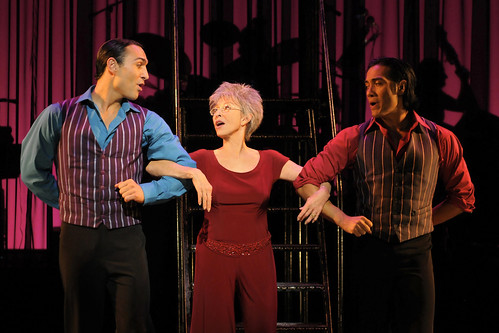
Rita Moreno dances through her past with Salvatore Vassallo (left) and Ray Garcia in the world premiere of Rita Moreno: Life Without Makeup at Berkeley Rep. Photos courtesy of kevinberne.com
She’s charming and gorgeous. Vivacious and soulful. In short, Rita Moreno is the perfect candidate for an autobiographical show.
Rita Moreno: Life Without Makeup is not yet the perfect show for this legendary performer, but it provides a snazzy opening to the Berkeley Repertory Theatre season.
Written by Berkeley Rep Artistic Director Tony Taccone and directed by David Galligan,, the show is at its best when Moreno is taking us through the ups and mostly downs of her storied career. Act 1 is a chronological narrative, beginning with a 5-year-old Rosa Dolores Alverío boarding a ship in 1936 to take them from Puerto Rico to a new life in New York.
From her first meeting with Louis B. Mayer at age 16, Moreno was catapulted from life in the barrio to the world of hardscrabble glamour as a Hollywood starlet who, it’s interesting to note, could have chose the screen name Mitzi Margarita.
What’s so interesting about Moreno’s story is that throughout her career, she was fighting stereotype – of Puerto Ricans, of women, of Puerto Rican women. She played Indian, Siamese, Native American, Polynesian and more and says her small roles in mostly forgettable movies defined her professionally as the “resident utility ethnic.”
When she finally played a Puerto Rican so famously in West Side Story, director Jerome Robbins made her – and ever actor playing Puerto Rican – wear a thick coat of makeup that made them all exactly the same color. The white actors could have varying skin tones, but the ethic actors were not allowed that measure of reality.
Those are the kind of details that really shine in Taccone’s smart script, which mostly eschews the razzle-dazzle of the typical show-biz biography.
The first half is punctuated by photos and film clips (Alexander V. Nichols’ projections and lights look terrific on Anna Louizos’ elegant set) and bits of musical numbers. A young Moreno sits on the fire escape of her building singing along with the Pied Pipers’ “Dream” on the radio. When she falls head over heels for Marlon Brando, she sings a few verses of “The Way He Makes Me Feel,” then when things go badly, she veers into “When October Goes.”
Music Director César Cancino and his quartet handle the music cues nicely, though it would be nice to have Moreno sing an entire song other than “The Hate Song,” an unnecessary bit from her stint on The Electric Company, which is represented far more successfully by a film clip of Moreno singing Tom Lehrer’s hilarious “The Menu Song” with Morgan Freeman.
Aided by dancers Ray Garcia and Salvatore Vassallo, Moreno re-creates her introduction to Spanish dancing as a teenager. She also resurrects Googie Gomez from The Ritz, a role that won her a 1975 Tony Award. While it’s wonderful to see Googie, the number (she massacres “Everything’s Coming Up Roses”) is overplayed. Moreno has done this bit to better effect in her cabaret act.
Moreno, who turns 80 in December, is a captivating storyteller, and hearing what life was like for a starlet in 1950s Hollywood is chilling. She describes being abandoned at a party (by the shoe magnate who would later marry Debbie Reynolds no less) and barely escaping some serious sexual assault.
In Act 2, the chronology turns into a more free-form recounting as Moreno struggles to find work. When she gets to West Side Story, she re-creates two numbers, “Dance at the Gym” and “America,” and while it’s always great to see Moreno strut her stuff, to faithfully perform these numbers requires more than what she’s got (her knees, she admits, aren’t what they used to be). She’s a trouper, no question, but this effort seems too much when a film clip might serve the storytelling more effectively.
While it would be impossible not to feature music in the story of Moreno’s life, the power in this show is her storytelling. Though leaning heavily on Teleprompters for the opening-night performance, Moreno fascinates as she describes almost losing her mind making Carnal Knowledge and then worrying about how playing a prostitute in that movie might affect her chances of getting the gig on The Electric Company.
Though the show is 2 ½ hours, there’s a lot she doesn’t mention. For instance, when she’s struggling in Hollywood and begins to consider secretarial school, suddenly her career gets a boost when she appears on the cover of Life magazine. Very exciting but how in the world did a struggling actress end up on the cover of Life?
It’s interesting that Moreno didn’t make a movie for seven years after West Side Story, but what makes it even more interesting is that she won an Academy Award for that movie, a fact she doesn’t mention (though that Oscar, along with many other awards are on display in the lobby and available for carefully guarded photo ops).
Though she does briefly, poignantly delve into the loss of her husband, Dr. Leonard Gordon, last year, she doesn’t discuss her later career much (beyond telling off a hot-shot British director by affirming that she does NOT do Mexican madams). That’s a shame because there are doubtless stories to be told about Sister Pete, the fascinating nun she played on HBO’s prison drama, Oz.
There’s a thread through the show of identity, and how Moreno has lost it, found it and fully owned it. At one crisis point, she says, “I had made myself up beyond all recognition.” These days it seems Moreno, who has won every award on the planet and conquered seemingly every aspect of show business, knows who she is and could afford to rest on her laurels. But she powers ahead, and her story keeps spinning on. Rita Moreno: Life Without Makeup will undoubtedly deepen as the run continues and the Moreno spark connects more fully with the compelling Moreno story.
[bonus video]
Here’s Moreno singing Tom Lehrer’s “The Menu Song” on The Electric Company with Morgan Freeman. Genius.
FOR MORE INFORMATION
Rita Moreno: Life Without Makeup continues an extended run through Nov. 12 at Berkeley Repertory Theatre’s Roda Theatre, 2015 Addison St., Berkeley. Tickets are $14.50-$73 (subject to change). Call (510) 647-2949 or visit www.berkeleyrep.org.

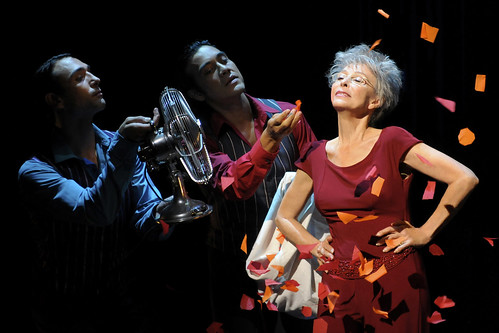
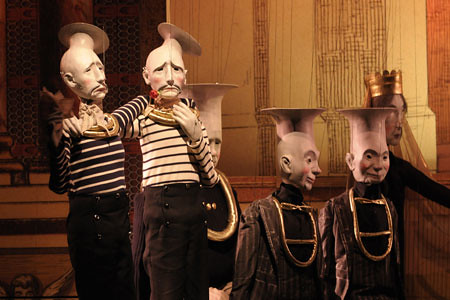
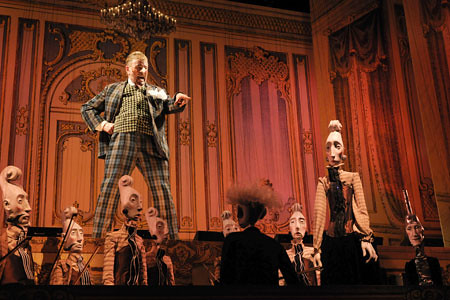
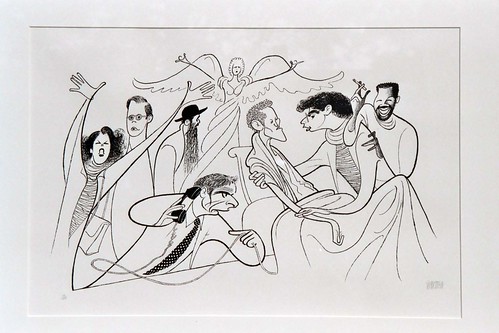


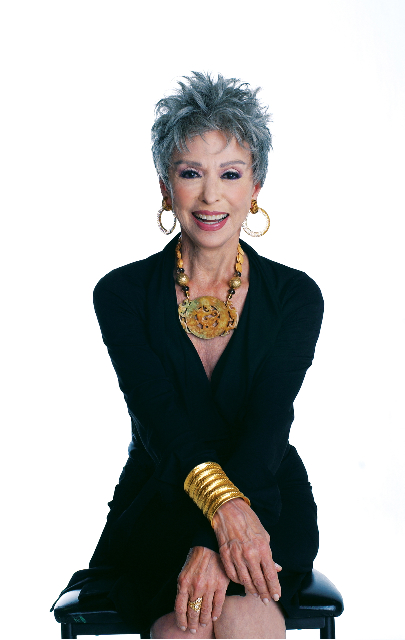
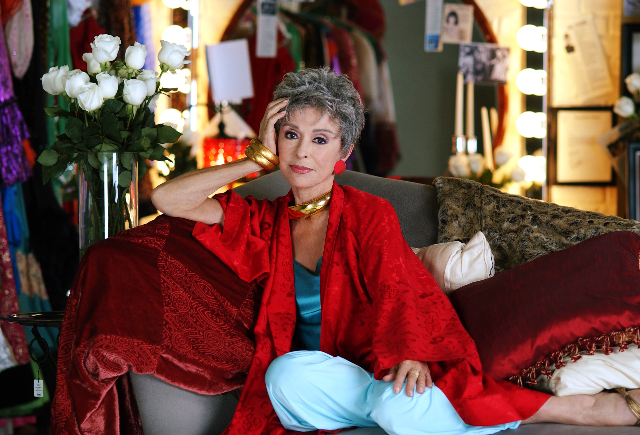
 Seems like just yesterday that Crowded Fire Theatre Company announced the departure of founding artistic director Rebecca Novick and the ascension of co-artistic directors (and husband-and-wife) Cassie Beck and Kent Nicholson. Actually, it was more like a year ago.
Seems like just yesterday that Crowded Fire Theatre Company announced the departure of founding artistic director Rebecca Novick and the ascension of co-artistic directors (and husband-and-wife) Cassie Beck and Kent Nicholson. Actually, it was more like a year ago.


 The day-long workshop will examine how journalism and theatre can inspire debate and ultimately create large-scale change within a community. Teens will participate in a morning discussion on the roles of performance and the media, and then break into smaller groups led by professional reporters to brainstorm compelling story angles inspired by the day’s debate. The panelists will include Kristin Bender of the Oakland Tribune, yours truly (freelance reporter Chad Jones), nationally renowned playwright Itamar Moses (at right in his Berkeley High days), artistic director Tony Taccone, and other respected local journalists.
The day-long workshop will examine how journalism and theatre can inspire debate and ultimately create large-scale change within a community. Teens will participate in a morning discussion on the roles of performance and the media, and then break into smaller groups led by professional reporters to brainstorm compelling story angles inspired by the day’s debate. The panelists will include Kristin Bender of the Oakland Tribune, yours truly (freelance reporter Chad Jones), nationally renowned playwright Itamar Moses (at right in his Berkeley High days), artistic director Tony Taccone, and other respected local journalists.

 The play will star Danny Scheie as Nero, emperor of Rome, famous for playing the fiddle while his city burned. In Freed’s comedy, not only does he fiddle, but he also fills the Colosseum with sex and decadence as he commands a washed-up scribe to create an extravaganza that flatters his pitiful regime.
The play will star Danny Scheie as Nero, emperor of Rome, famous for playing the fiddle while his city burned. In Freed’s comedy, not only does he fiddle, but he also fills the Colosseum with sex and decadence as he commands a washed-up scribe to create an extravaganza that flatters his pitiful regime.
